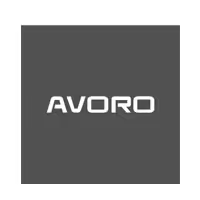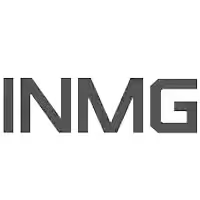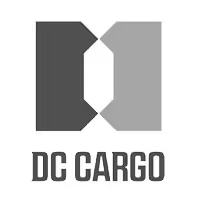The Role of PPC in Highlighting Lakeland’s Infrastructure for Logistics Growth

As businesses in the logistics industry continue to expand, the importance of effective advertising strategies becomes increasingly apparent. Pay-Per-Click (PPC) advertising is a crucial method for highlighting key aspects of logistical advantages within a region. Lakeland, Florida, with its strategic infrastructure, presents various opportunities for businesses focused on logistics growth. This article explores how PPC can play a significant role in showcasing Lakeland's infrastructure and facilitating logistics development.
The Advantages of Lakeland’s Location for Supply Chain Efficiency
Located in the heart of Florida, Lakeland boasts a unique geographical advantage that significantly benefits supply chain efficiency. Its proximity to major highways, railroads, and air transport hubs facilitates easy access to various markets across the state and beyond. This strategic position minimizes transportation times and reduces costs, which is essential for logistics operations.
Moreover, Lakeland's access to major interstates, such as I-4 and I-75, creates an excellent network for shipping and receiving goods, ensuring that logistics providers can operate with optimal efficiency. With nearby connections to ports and other transportation services, Lakeland stands out as a critical point for logistics and distribution.
Key Factors Contributing to Supply Chain Efficiency
- Strategic Highway Access: Quick routes to metropolitan areas enhance delivery times.
- Rail Connectivity: Freight services allow for cost-effective bulk shipments.
- Proximity to Airports: Facilitates rapid shipping options for high-demand goods.
The advantages offered by Lakeland's location make it an attractive option for businesses in the logistics sector, leading to increased investment and opportunities for growth. Additionally, the city's commitment to infrastructure development further enhances its appeal. Ongoing improvements to roadways and transportation facilities ensure that Lakeland remains at the forefront of supply chain innovation, allowing businesses to adapt quickly to changing market demands.
Furthermore, Lakeland's vibrant economic landscape is bolstered by a diverse range of industries, from agriculture to manufacturing, which rely heavily on efficient supply chain operations. The synergy between these sectors fosters collaboration and innovation, creating a robust ecosystem that supports both established companies and startups. As businesses continue to recognize the advantages of Lakeland's strategic location, the city is poised to become an even more significant player in the logistics and distribution arena.
Crafting Campaigns to Highlight Nationwide Shipping Services
Effective PPC campaigns are essential tools for logistics companies looking to promote their services. By focusing on nationwide shipping offerings, businesses can capture the attention of a broader audience. Through targeted ad campaigns on platforms like Google Ads and social media, logistics companies can emphasize their capabilities in shipping goods across the country. This approach not only helps in reaching potential customers but also establishes the brand as a reliable partner in logistics, fostering trust and credibility in a competitive marketplace.
When crafting these campaigns, it’s important to utilize data analytics to define key demographics and optimize ad reach. Ad creatives should highlight unique selling propositions, such as speed, reliability, and competitive pricing, which resonate with businesses looking for logistical solutions. Additionally, incorporating testimonials and case studies into the campaign can further enhance credibility, showcasing real-world examples of successful shipping experiences and satisfied customers.
Best Practices for Effective PPC Campaigns
- Targeted Keywords: Use relevant keywords that potential clients search for.
- Compelling Ad Copy: Create engaging messages that prompt action.
- Optimized Landing Pages: Ensure landing pages reinforce ad messages and convert visitors into leads.
By adhering to these practices, logistics companies can significantly improve their visibility in the market, leading to increased inquiries and potential clients. Furthermore, regularly monitoring and adjusting campaigns based on performance metrics can lead to continuous improvement. A/B testing different ad formats and messages allows companies to identify what resonates best with their audience, ensuring that every dollar spent on advertising yields the highest possible return on investment. This iterative approach not only enhances campaign effectiveness but also keeps the logistics company agile in responding to market trends and customer needs.
Using PPC to Target Logistics Coordinators and Decision-Makers
PPC advertising offers a unique opportunity to directly target key decision-makers in the logistics field. Utilizing platforms such as LinkedIn and industry-specific websites allows businesses to focus their efforts on logistics coordinators, managers, and executives who influence purchasing decisions. Understanding the roles and responsibilities of these individuals helps in tailoring ad messages to meet their specific needs and challenges. For instance, logistics coordinators often juggle multiple tasks, from managing supply chains to coordinating transportation logistics. By addressing their pain points, such as time management and cost efficiency, businesses can create compelling ad content that resonates with this audience.

Furthermore, employing retargeting strategies can ensure that potential clients remain engaged with the brand even after they leave the website. This creates multiple touchpoints, increasing the likelihood of conversion, as logistics coordinators often require several interactions before making significant decisions. Additionally, integrating personalized content based on previous interactions can further enhance engagement. For example, if a logistics coordinator has shown interest in a specific service, displaying ads that highlight case studies or testimonials related to that service can help reinforce the value proposition and build trust.
Effective Targeting Techniques
- Geographic Targeting: Focus on regions with high logistics activity.
- Demographic Filters: Aim for logistics professionals with purchasing power.
- Behavioral Targeting: Use data on previous interactions to inform targeting.
Leveraging these techniques can enhance the efficacy of PPC campaigns, driving significant returns for logistics businesses. Additionally, incorporating keyword research specific to the logistics industry can further refine targeting efforts. By identifying terms that logistics professionals frequently search for, businesses can optimize their ad copy and landing pages, ensuring relevance and increasing the chances of capturing leads. Moreover, using A/B testing to experiment with different ad formats and messaging can provide valuable insights into what resonates best with this audience, allowing for continuous improvement of PPC strategies.
Measuring ROI for Logistics Advertising Campaigns
One of the critical components of successful PPC advertising is measuring the return on investment (ROI) effectively. Without a clear understanding of what works and what doesn’t, logistics companies may struggle to allocate resources appropriately. Key performance indicators (KPIs) such as click-through rates, conversion rates, and customer acquisition costs should be monitored consistently.

The integration of tracking tools helps to analyze campaign performance, allowing for adjustments and refinements. This data-driven approach ensures that marketing dollars are spent efficiently and effectively, maximizing the potential for lead generation and conversion. Moreover, utilizing advanced analytics platforms can provide deeper insights into customer behavior, enabling logistics companies to tailor their campaigns to meet the specific needs and preferences of their target audience.
Key Metrics for Tracking ROI
- Cost per Click (CPC): Evaluates how much is spent on each click.
- Conversion Rate: Measures the percentage of clicks that result in desired actions.
- Lifetime Value (LTV): Considers the total revenue generated from a client during their relationship with the business.
By regularly reviewing these metrics, businesses can better understand their ROI and make informed decisions about future marketing strategies. Additionally, it’s vital to consider the impact of external factors such as market trends and seasonal fluctuations, which can significantly influence campaign performance. For instance, a logistics company might experience a surge in demand during the holiday season, necessitating a strategic pivot in their advertising efforts to capitalize on this increased interest.
Furthermore, employing A/B testing can be an invaluable strategy for optimizing campaigns. By comparing different versions of ads or landing pages, logistics companies can identify which elements resonate most with their audience. This iterative process not only enhances the effectiveness of current campaigns but also contributes to a more robust understanding of customer preferences over time, ultimately leading to more successful advertising initiatives in the future.
How We Maximize Success for Lakeland’s Logistics Industry
As an industry leader in digital marketing strategies, our approach to maximizing success for Lakeland's logistics industry hinges on utilizing PPC effectively. We not only optimize campaigns for visibility but also focus on creating long-lasting relationships with the targeted audience. By coupling PPC initiatives with comprehensive marketing strategies, we ensure that our clients achieve their growth objectives.
Collaboration with local industry stakeholders to understand their unique challenges and requirements also plays a crucial role. Through tailored advertising solutions and ongoing performance evaluations, we are committed to helping businesses thrive in the competitive logistics landscape.
Our Comprehensive Strategy Includes
- Customized PPC Campaigns: Tailored to suit individual business needs.
- Integrated Marketing Solutions: Combining PPC with SEO, social media, and content marketing.
- Continuous Optimization: Regularly refining strategies based on performance data.
By employing these strategies, we can effectively boost Lakeland’s logistics industry, facilitating continued infrastructure growth and logistical expansion.
In conclusion, PPC advertising represents a powerful tool for showcasing the advantages of Lakeland’s infrastructure for logistics growth. With its prime location, developing campaigns that target key decision-makers, measuring ROI effectively, and continuously refining strategies, logistics companies can leverage their presence in a highly competitive market. As Lakeland continues to grow as a logistics hub, adopting a strategic approach to advertising will be instrumental in unlocking its full potential.

As a Google Ads expert, I bring proven expertise in optimizing advertising campaigns to maximize ROI.
I specialize in sharing advanced strategies and targeted tips to refine Google Ads campaign management.
Committed to staying ahead of the latest trends and algorithms, I ensure that my clients receive cutting-edge solutions.
My passion for digital marketing and my ability to interpret data for strategic insights enable me to offer high-level consulting that aims to exceed expectations.
Google Partner Agency
We're a certified Google Partner Agency, which means we don’t guess — we optimize withGoogle’s full toolkit and insider support.
Your campaigns get pro-level execution, backed by real expertise (not theory).

4.9 out of 5 from 670+ reviews on Fiverr.
That’s not luck — that’s performance.
Click-driven mind
with plastic-brick obsession.
We build Google Ads campaigns with the same mindset we use to build tiny brick worlds: strategy, patience, and zero tolerance for wasted pieces.
Data is our blueprint. Growth is the only acceptable outcome.





























